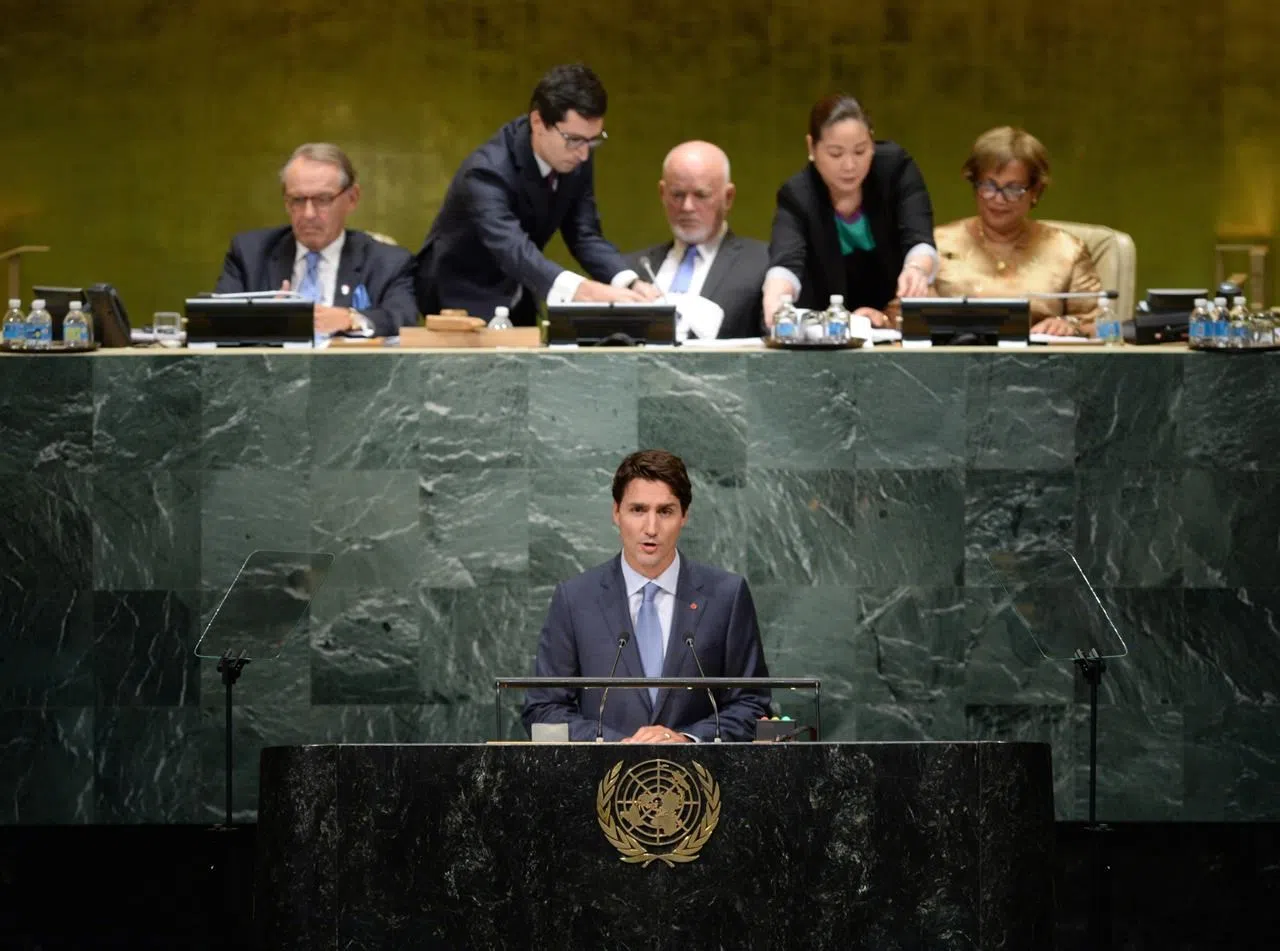
The Tuesday news briefing: An at-a-glance survey of some top stories
Highlights from the news file for Tuesday, Sept. 20
____
TRUDEAU DENOUNCES POLITICS OF ANXIETY SPEECH AT UN: Justin Trudeau’s first speech to the United Nations General Assembly included some less-than-subtle references to the politics practised by people like Donald Trump, in a year where populist nationalism has made gains in different countries. The prime minister never mentioned any names. Yet he warned three times in his speech about politicians who exploit anxiety for personal gain. Trudeau told the convention hall that politicians have a choice to make: stoke public anxiety because it works for them politically, or try alleviating it with policies that improve people’s lives.
____


